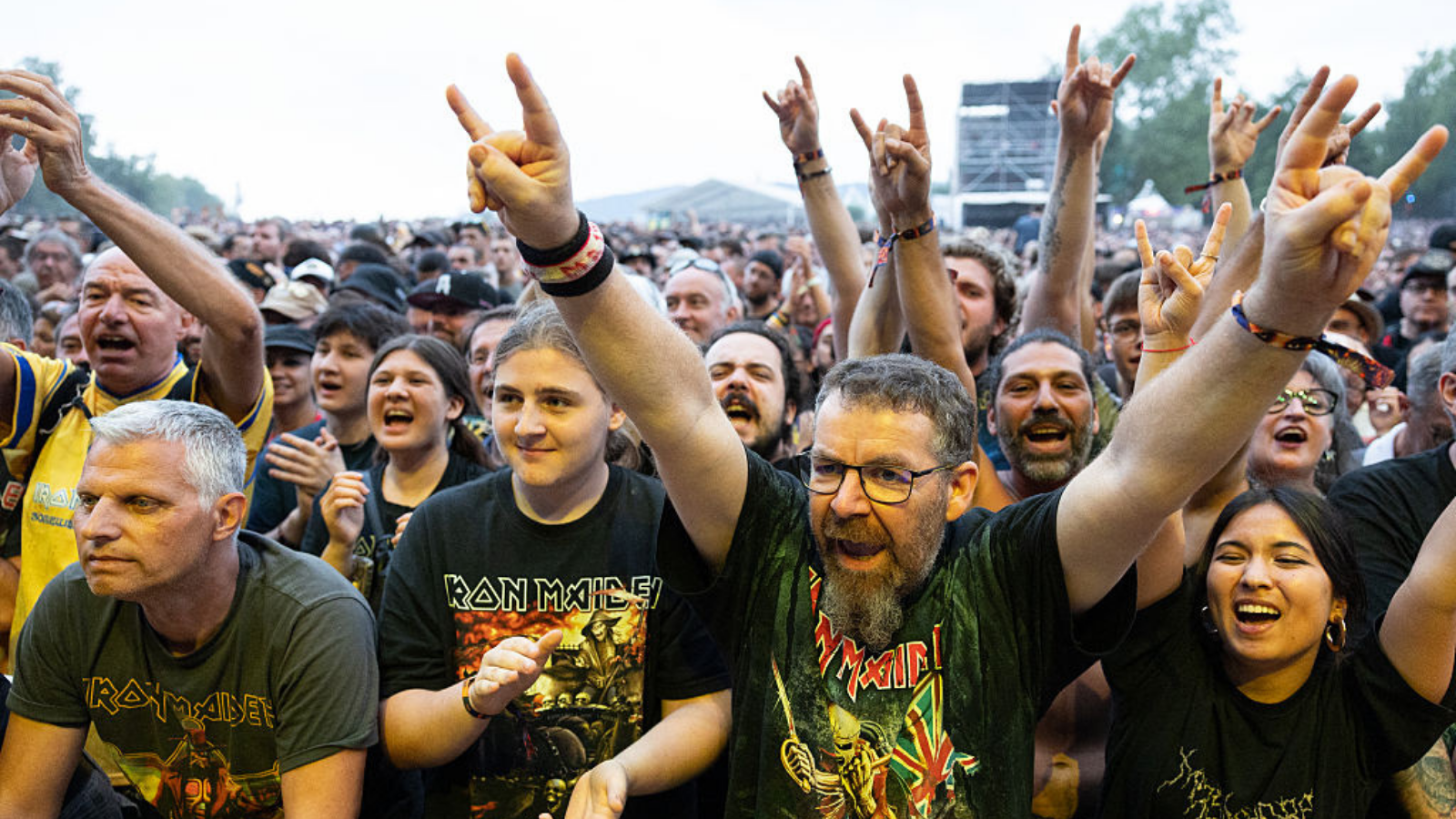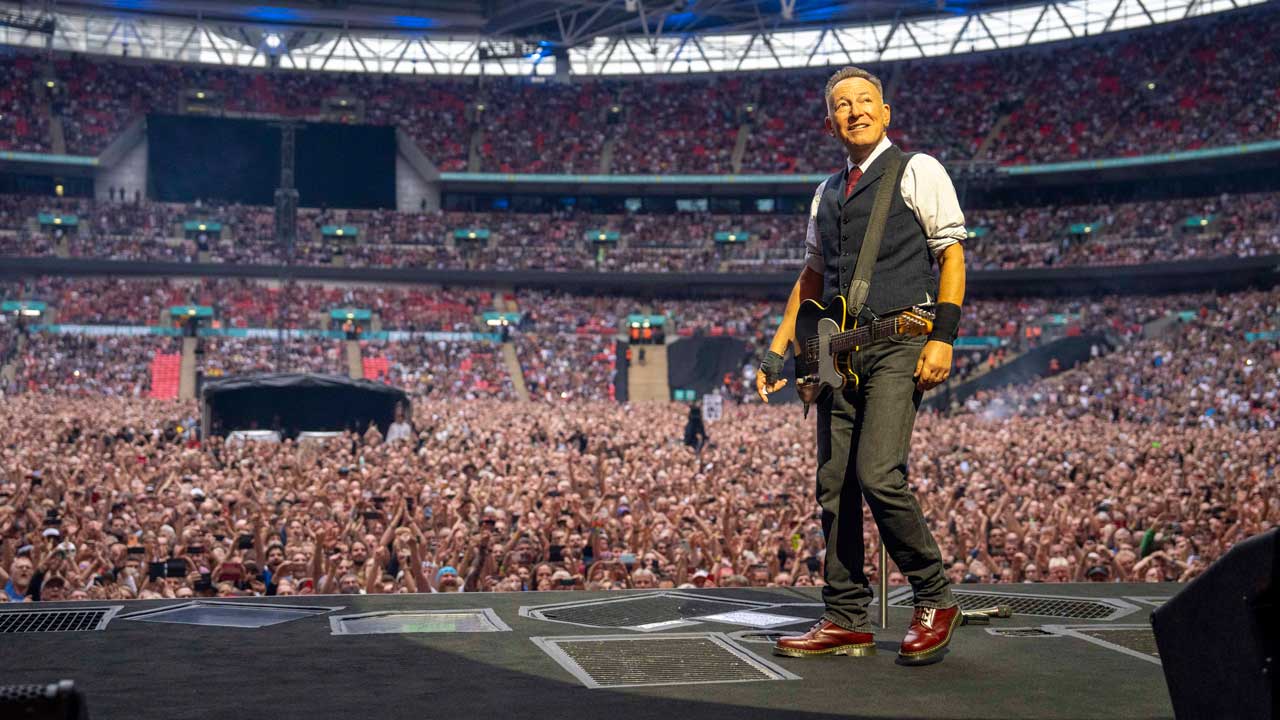UK government confirms it will introduce ban on selling secondary gig tickets for a profit
War on ticket touts steps up as government reveals bold plans to hit secondary ticket platforms in the pocket if they don't comply

Select the newsletters you’d like to receive. Then, add your email to sign up.
You are now subscribed
Your newsletter sign-up was successful
Want to add more newsletters?

Every Friday
Louder
Louder’s weekly newsletter is jam-packed with the team’s personal highlights from the last seven days, including features, breaking news, reviews and tons of juicy exclusives from the world of alternative music.

Every Friday
Classic Rock
The Classic Rock newsletter is an essential read for the discerning rock fan. Every week we bring you the news, reviews and the very best features and interviews from our extensive archive. Written by rock fans for rock fans.

Every Friday
Metal Hammer
For the last four decades Metal Hammer has been the world’s greatest metal magazine. Created by metalheads for metalheads, ‘Hammer takes you behind the scenes, closer to the action, and nearer to the bands that you love the most.

Every Friday
Prog
The Prog newsletter brings you the very best of Prog Magazine and our website, every Friday. We'll deliver you the very latest news from the Prog universe, informative features and archive material from Prog’s impressive vault.
The UK government has confirmed it will introduce laws that ban the selling of secondary concert and event tickets for a profit.
After a consultation period, the country's Labour-led government has revealed the bold move which goes further than previously anticipated. It was thought the rules would cap any secondary sales profits at 30%, but the government has now announced secondary tickets will not be allowed to be sold for more than the face value.
As reported by the NME, the new rules will collectively save music, sports, comedy and theatre fans millions of pounds every year. Secondary ticket platforms such as Viagogo will also be banned from adding massive fees and they'll face heavy fines if they flout the rules.
UK Culture Secretary Lisa Nandy tells the NME: "We promised when we were elected that it would be time up for ticket touts. It’s a good day.
"People will obviously be able to re-sell their tickets, but not for any more than the price they paid for it. They’ll have to sell it at face value. You do get lots of people who later find that they can’t go to a gig or sporting event, and we want to make sure that they can still sell their ticket.
"They won’t be able to add on any more money than they paid, but they will be able to get their money back."
Explaining how the rules will be enforced, Nandy adds: "There will be powers for the Competition and Markets Authority (CMA) to be able to fine platforms up to 10% of their annual income. If they’re not complying, the CMA will intervene and it could result in multi-million pound fines for rogue firms, wherever they’re based in the world.
The latest news, features and interviews direct to your inbox, from the global home of alternative music.
"If a global business is targeting UK consumers, regardless of where they’re headquartered, the CMA will have the power to be able to find them if they’re not compliant with our laws."
The laws will have to be approved by the UK's House of Commons and House of Lords before coming into effect.
Nandy says the controversial practice of 'dynamic ticket pricing' will not be banned outright, but ticket sellers will have to be upfront about their pricing structures.
She adds: "We’re not announcing an end to dynamic pricing, but where we have concerns is in making sure that consumers have the right information and the fullest information.
"After the debacle around the sale of Oasis tickets where people were going into a queue and then eventually getting to the front to find that the price they thought they were paying was vastly inflated, a number of people find they could no longer afford it.
“We’re not saying that a company wouldn’t be able to use dynamic pricing. What we are saying, and what the CMA has already said, is that people have to have accurate information and ticket descriptions. They have to understand the practices being used to prevent those huge surprises.”
Stef wrote close to 5,000 stories during his time as assistant online news editor and later as online news editor between 2014-2016. An accomplished reporter and journalist, Stef has written extensively for a number of UK newspapers and also played bass with UK rock favourites Logan. His favourite bands are Pixies and Clap Your Hands Say Yeah. Stef left the world of rock'n'roll news behind when he moved to his beloved Canada in 2016, but he started on his next 5000 stories in 2022.
You must confirm your public display name before commenting
Please logout and then login again, you will then be prompted to enter your display name.
